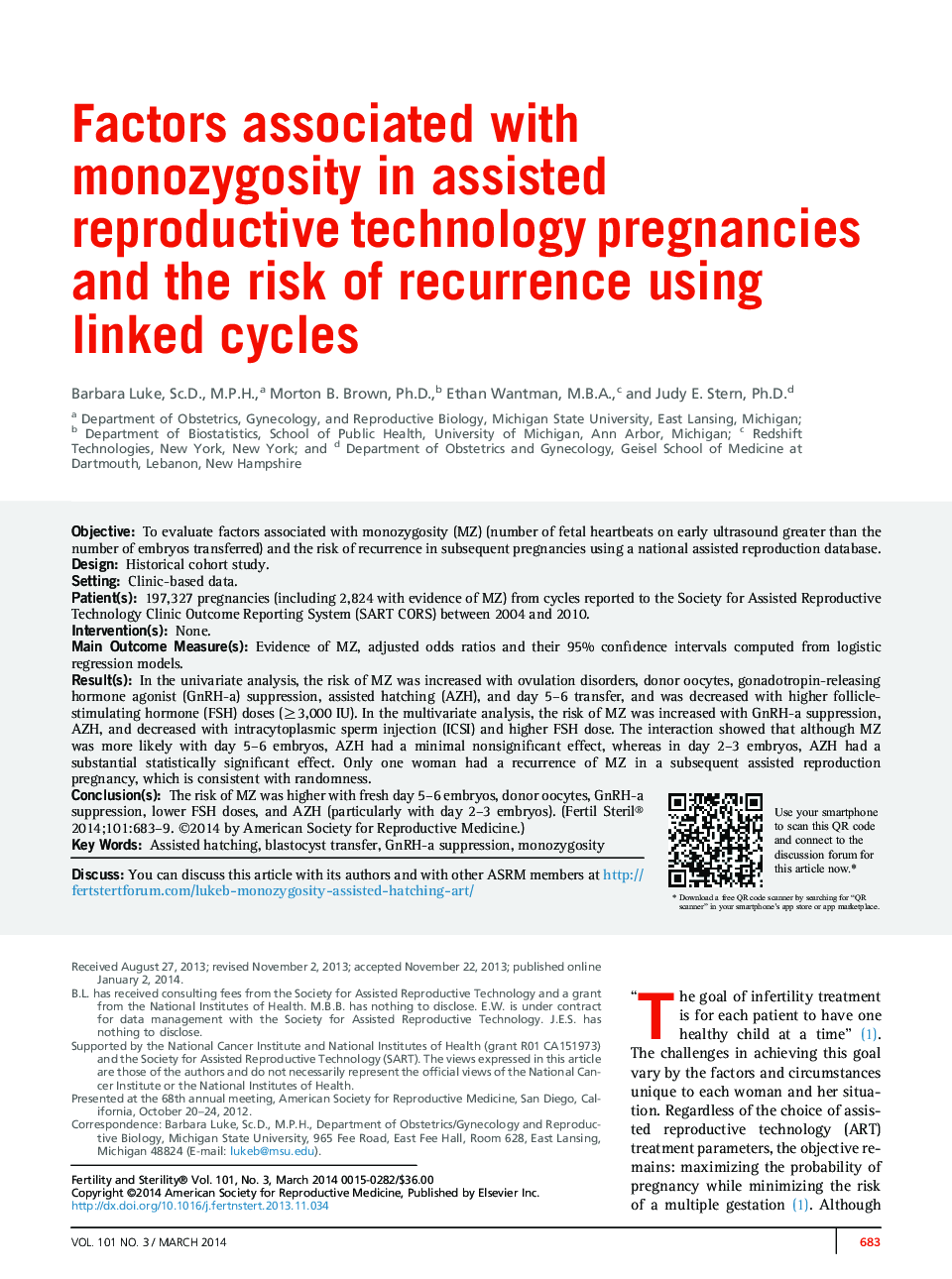| Article ID | Journal | Published Year | Pages | File Type |
|---|---|---|---|---|
| 6180282 | Fertility and Sterility | 2014 | 7 Pages |
ObjectiveTo evaluate factors associated with monozygosity (MZ) (number of fetal heartbeats on early ultrasound greater than the number of embryos transferred) and the risk of recurrence in subsequent pregnancies using a national assisted reproduction database.DesignHistorical cohort study.SettingClinic-based data.Patient(s)197,327 pregnancies (including 2,824 with evidence of MZ) from cycles reported to the Society for Assisted Reproductive Technology Clinic Outcome Reporting System (SART CORS) between 2004 and 2010.Intervention(s)None.Main Outcome Measure(s)Evidence of MZ, adjusted odds ratios and their 95% confidence intervals computed from logistic regression models.Result(s)In the univariate analysis, the risk of MZ was increased with ovulation disorders, donor oocytes, gonadotropin-releasing hormone agonist (GnRH-a) suppression, assisted hatching (AZH), and day 5-6 transfer, and was decreased with higher follicle-stimulating hormone (FSH) doses (â¥3,000 IU). In the multivariate analysis, the risk of MZ was increased with GnRH-a suppression, AZH, and decreased with intracytoplasmic sperm injection (ICSI) and higher FSH dose. The interaction showed that although MZ was more likely with day 5-6 embryos, AZH had a minimal nonsignificant effect, whereas in day 2-3 embryos, AZH had a substantial statistically significant effect. Only one woman had a recurrence of MZ in a subsequent assisted reproduction pregnancy, which is consistent with randomness.Conclusion(s)The risk of MZ was higher with fresh day 5-6 embryos, donor oocytes, GnRH-a suppression, lower FSH doses, and AZH (particularly with day 2-3 embryos).
